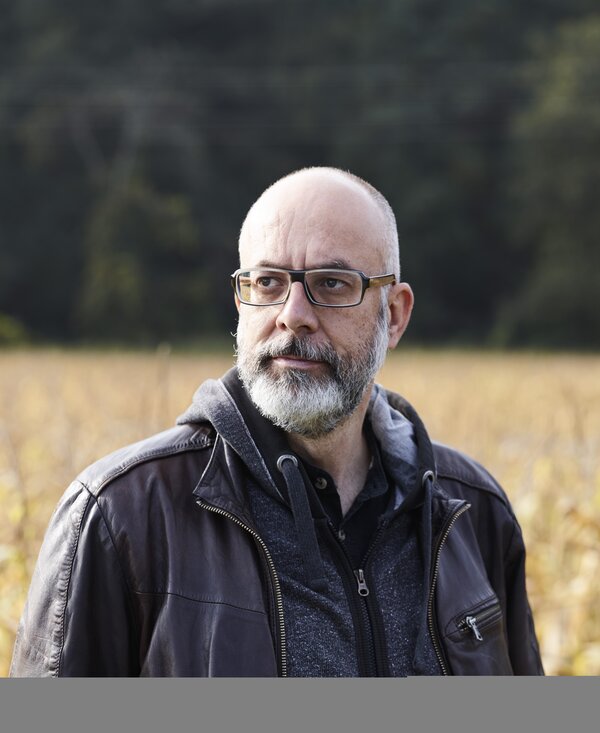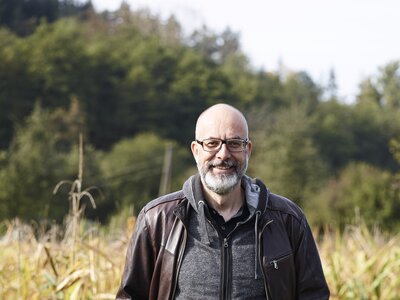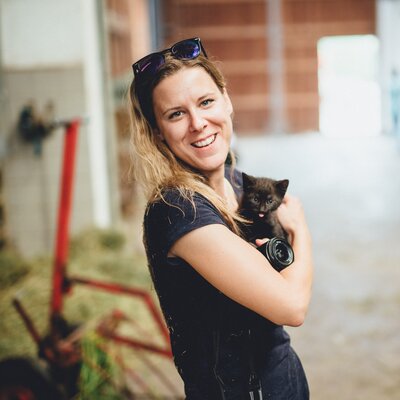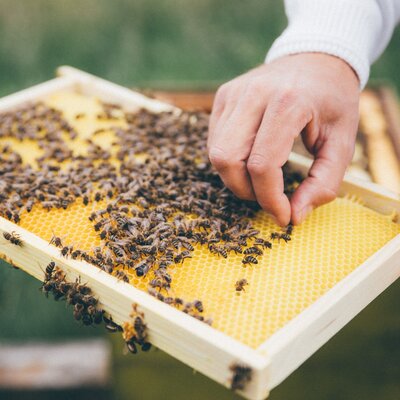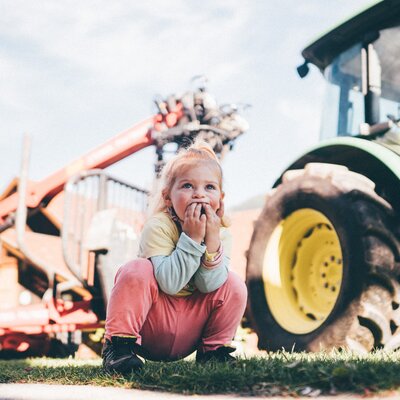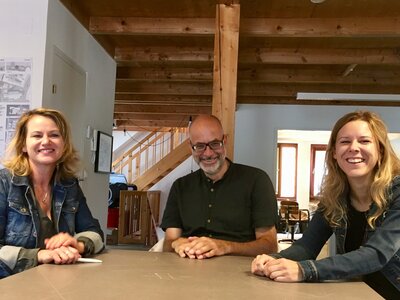
"I can't think of a profession that is as varied as that of a farmer. There are so many different fields of work on farms that have retained their small-scale nature. But there are farms where this is unfortunately no longer the case." Robert Schabus on his origins, structural change, the reality of farming and the responsibility of politicians and consumers.
Personal details: Robert Schabus 47 years old, filmmaker in the social documentary field, studied philosophy, education and media communication and grew up as one of 3 brothers on a Farm holidays farm in Gailtal/Carinthia and lives in Klagenfurt.
To what extent did the farming environment shape your development?
"Growing up on a farm was incredibly rich and varied. You live at work and with your work, which is not common in other professions. Of course, we also had to help as children. There was a wood workshop where we built wooden shelves for our rooms ourselves as children. You do a lot for yourself, make a living from your own products, work with animals, nature and machines. Socially, it's sometimes a tight field because you're together all day, often across generations, and that's sometimes not easy. We were one of the first to have "troat boxes" for rent. We were always told: "Be friendly to the guests"! That wasn't difficult for us back then either, as there were also children. We almost grew up with some of them because they came every year."
How did the idea for the movie "Bauer unser" come about?
Growing up on a farm and the connection to my brother and his wife, who run the farm today, gave me an inside view of this profession. I was always very annoyed by the comically romanticized view of agriculture in advertising - the farmer stroking the ears of wheat with his hand, taking his cow for a walk or where the animals can talk. I wanted to correct this glorified image - which is largely painted by the trade but also by the tourism industry - a little.
I wanted to paint a picture of agriculture as it is, show how people are doing there, how the political game works, who exerts pressure and who makes money from agriculture.
The farm - a piece of the ideal world?
The farm vacation destination is perhaps special because it is close to the farm work, the animals, close to the people who produce our food. The farm is a place where work is something personal. Everything you do has a direct impact on you, on the animals and the environment - you have a lot of responsibility! But the farm is by no means a perfect world, because the working conditions are not good, the hourly wages are poor and the prices for farm produce are at rock bottom!
Where is the consumer's responsibility?
If I am standing in front of a supermarket shelf with 15 different types of milk, how am I as a consumer supposed to know which one is good? It's wrong to ask the consumer to "buy the expensive milk so that the farmers get a higher price"! And with processed products, it becomes even more complicated for consumers to know where the individual ingredients come from. It is a trick of politics to talk consumers out of it. The so-called "free market" must be shaped. International free competition simply does not work because there are completely different production methods just one state or federal border away. An Austrian dairy farmer simply cannot compete on price with one from northern Germany.
What has led to the fall in prices in agriculture - and what solutions are there?
The economy has an interest in food being cheap so that there is enough money to flow into our consumer economy. We have a very concentrated food trade in Austria. If one supermarket chain lowers its prices, all the others follow suit. This strong competition pushes prices down further and further in the long term. However, the margin for retailers always remains the same. This competition is carried out on the backs of the farmers. The value of farm produce is no longer reflected in the price at all. Again, this is only possible because agriculture is subsidized. But food is actually not as cheap as we think. Because at the end of the month we also pay for the subsidies through our taxes. This is also a very unsatisfactory situation for farming families. To put it provocatively: You could also give the products in the supermarket the price they are worth again. And then we subsidize the people who can no longer afford the food. That would also make it more transparent what is actually happening. It's not actually the farmers who are being subsidized, but our economic system.
Where will we be in 10 years?
If the framework conditions do not change, the number of farms will certainly continue to fall sharply. Particularly in the case of part-time farms, the question is who will do it at all when the next generation takes over. Everyone who does it should actually be rewarded.
We describe ourselves as ambassadors of the farming world, what advice can you give us?
Nothing to embellish and nothing to glorify, reality is the be-all and end-all. You can expect people to face the truth, the farming world is what it is and it is more than just romantic manual labor in the sunset. Farm work means using machines, and also that the butcher picks up the animals. The gap between consumers and farmers has also become so wide because the clichéd images do not reflect reality. So let's do away with the clichés, open the stable doors and invite people in. School on the farm is a positive example of this.
His best-known project "Bauer unser"
Marlies Glatz
Assistent Farm Holidays in Carinthia, 20 Article(s)
